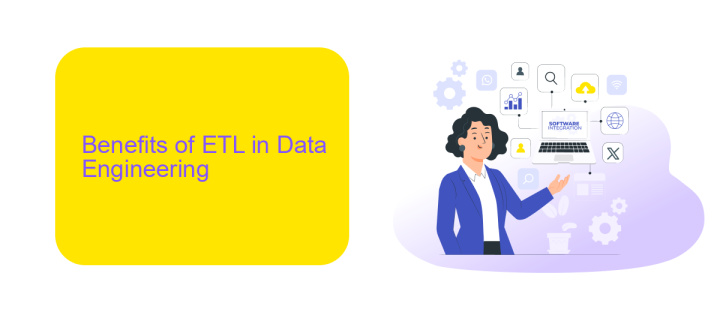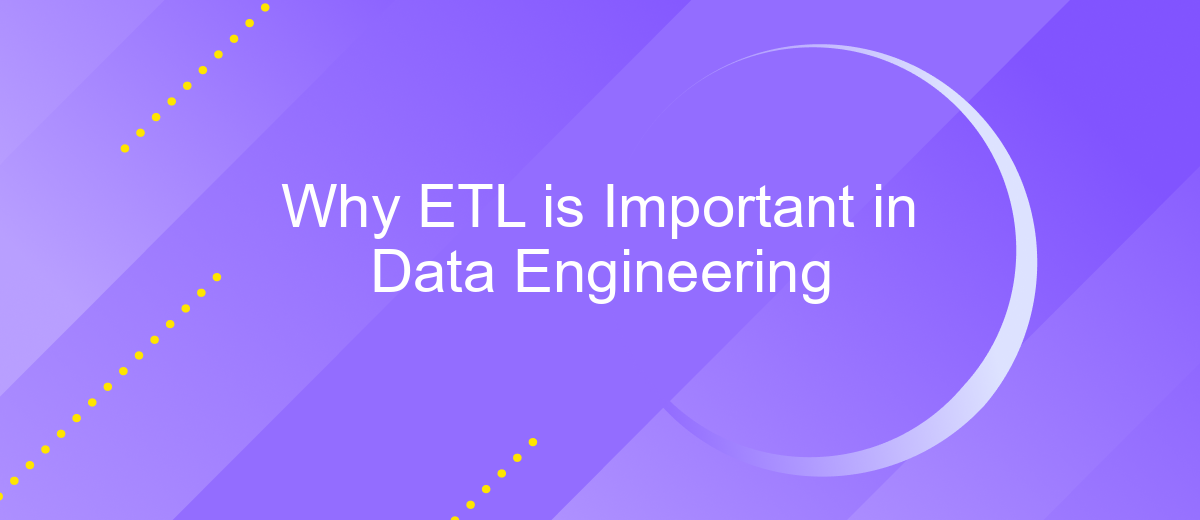Why ETL is Important in Data Engineering
In the realm of data engineering, ETL (Extract, Transform, Load) processes are crucial for converting raw data into valuable insights. By systematically extracting data from various sources, transforming it into a usable format, and loading it into a data warehouse, ETL ensures data integrity, accuracy, and accessibility. This foundational process enables businesses to make informed decisions and drive strategic initiatives.
Introduction to ETL
ETL, which stands for Extract, Transform, Load, is a fundamental process in data engineering. It involves extracting data from various sources, transforming it into a suitable format, and loading it into a data warehouse or another target system. This process ensures that data is accessible, reliable, and ready for analysis.
- Extract: Data is collected from multiple sources, such as databases, APIs, and flat files.
- Transform: The extracted data is cleaned, filtered, and transformed into a consistent format.
- Load: The transformed data is loaded into a target system for further analysis and use.
Effective ETL processes are crucial for businesses to make data-driven decisions. Tools like ApiX-Drive help automate the integration of various data sources, making the ETL process more efficient. By leveraging such services, organizations can streamline their data workflows, reduce manual errors, and ensure that their data is always up-to-date and ready for analysis.
Benefits of ETL in Data Engineering

ETL (Extract, Transform, Load) is a cornerstone in data engineering, enabling the seamless integration and processing of data from various sources. By systematically extracting data, transforming it into a usable format, and loading it into a destination system, ETL ensures data consistency, accuracy, and accessibility. This process is crucial for data-driven decision-making, as it allows businesses to consolidate disparate data into a single, coherent dataset, providing a comprehensive view of operations and performance.
Moreover, ETL processes enhance data quality by cleansing and validating data during the transformation phase, eliminating duplicates and correcting errors. Tools like ApiX-Drive facilitate these integrations by automating data transfers between different platforms, reducing manual effort and the risk of human error. This automation not only accelerates data workflows but also ensures real-time data availability, which is vital for timely and informed decision-making. In essence, ETL processes and tools like ApiX-Drive empower organizations to harness the full potential of their data, driving efficiency and strategic insights.
Challenges of ETL

ETL (Extract, Transform, Load) processes are crucial in data engineering, but they come with their own set of challenges. These challenges can affect the efficiency, accuracy, and reliability of data workflows, making it essential to address them effectively.
- Data Quality: Ensuring the accuracy and consistency of data during extraction and transformation is a significant hurdle. Poor data quality can lead to incorrect insights and decisions.
- Scalability: As data volumes grow, ETL processes must scale accordingly. This requires robust infrastructure and sometimes complex architectural changes.
- Integration: Integrating data from diverse sources can be complex. Tools like ApiX-Drive can simplify this by automating the integration process, reducing manual effort and errors.
- Performance: ETL processes can be time-consuming, especially with large datasets. Optimizing performance to ensure timely data availability is essential.
- Security: Protecting sensitive data during ETL processes is critical. Implementing strong security measures to safeguard data is a must.
Addressing these challenges requires a combination of advanced tools, strategic planning, and continuous monitoring. Leveraging solutions like ApiX-Drive can significantly streamline the integration aspect, making the ETL process more manageable and efficient.
Best Practices for ETL

To ensure the success of your ETL processes, following best practices is crucial. Proper planning, execution, and monitoring can significantly improve data quality and system performance.
First, always start with a clear understanding of your data sources and requirements. Documenting these details helps in designing an efficient ETL pipeline. Secondly, choose the right tools and technologies that align with your project needs. For instance, ApiX-Drive can simplify integration tasks, making it easier to connect different data sources.
- Automate as much as possible to reduce human error and save time.
- Implement robust error handling and logging mechanisms.
- Regularly monitor and maintain your ETL processes to ensure they run smoothly.
- Ensure data security and compliance with relevant regulations.
- Optimize performance by fine-tuning your ETL jobs and workflows.
Lastly, always test your ETL processes thoroughly before deploying them into production. This helps in identifying any potential issues early and ensures the reliability of your data pipeline. By adhering to these best practices, you can achieve efficient and effective ETL operations.


Conclusion
In conclusion, ETL processes play a pivotal role in data engineering by ensuring that data is efficiently extracted, transformed, and loaded into a centralized system. This not only enhances data quality and integrity but also enables organizations to make informed decisions based on reliable data. The ability to clean, normalize, and integrate data from various sources is crucial for maintaining a competitive edge in today's data-driven world.
Moreover, leveraging tools like ApiX-Drive can significantly streamline the integration process. ApiX-Drive offers a user-friendly platform to automate data workflows, reducing the need for manual intervention and minimizing errors. By utilizing such services, businesses can focus more on analyzing data rather than managing it, ultimately driving better outcomes and fostering innovation. Thus, incorporating robust ETL strategies and tools is essential for any organization aiming to harness the full potential of their data assets.
FAQ
Why is ETL important in data engineering?
What are the main components of the ETL process?
How does ETL improve data quality?
What are some common challenges in implementing ETL processes?
Can ETL processes be automated, and how?
Apix-Drive is a simple and efficient system connector that will help you automate routine tasks and optimize business processes. You can save time and money, direct these resources to more important purposes. Test ApiX-Drive and make sure that this tool will relieve your employees and after 5 minutes of settings your business will start working faster.

